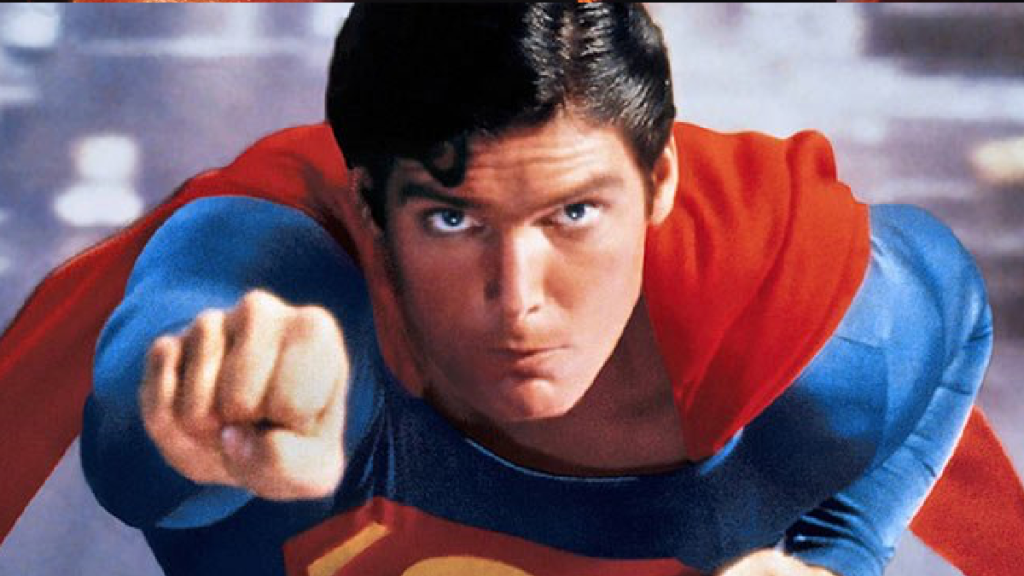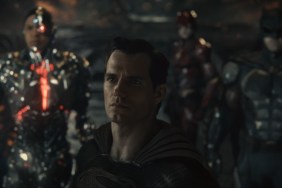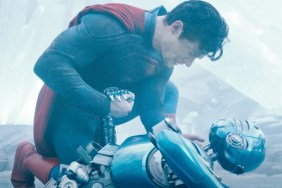As a kid, I was prone to running around in the backyard with a towel tied to my neck, arms outstretched, fists clenched, pretending to be Superman. Specifically: Christopher Reeve’s Superman. Like so many other kids, Richard Donner’s majestic Superman: The Movie captured my imagination. I wasn’t around when it first hit theaters in 1978, but I almost wore out my VHS tape watching the mighty epic dozens of times per day.
In those days, superhero movies didn’t exist. Star Wars was king. Late-stage John Wayne had paved the way for grittier, more flawed heroes like Indiana Jones, Ellen Ripley, Alex Murphy, Axel Foley, and John McClane. Darker, edgier tales about war, greed, sex, and violence were the name of the game. In 1989, Tim Burton‘s Batman swooped in and usurped Superman as the de facto superhero of the era, a bleak reflection of our changing times.
Reeve’s Superman marked a last hurrah for the good-natured hero. He’s a decent man striving to live up to truth, justice, and the American way. His ideology is firmly rooted in 40s-era optimism; he seems a little cheesy against the cynical backdrop of the 1970s, but that’s the point. He always tells the truth, expects the best in others, and strives to be the best version of himself.
In this day and age of constant bickering, hate, violence, and cynicism, Reeve’s Superman feels more necessary than ever. On a recent rewatch with my two daughters, I was swept up in the film’s overwhelming hopefulness, which remains its greatest strength. Something is endearing about a man who swoops around the city arresting petty criminals, who then saves a cat from a tree.
I also love how the world accepts Superman without questioning his resolve. His presence doesn’t induce panic or fear, only curiosity. People naturally want to learn more about this giant blue man—How does he fly? Does he eat? Where is he from? Donner and writers Mario Puzo, David and Leslie Newman, and Robert Benton aren’t interested in exploring Superman’s psyche. He’s an alien from the planet Krypton who arrives to do good. And that’s it. He inspires others like Lois Lane (Margot Kidder) to do better, but mostly, they view him as an extension of law enforcement, who happens to fly.
In Man of Steel, Zack Snyder took a different (and novel) approach by examining the world’s reaction to Superman. His presence changes their perception of religion, science, and space. He induces fear but eventually inspires hope. Man of Steel is leagues darker, emphasizing the violence and destruction caused by Superman and his fellow Kryptonians.
I respect both takes on the hero. Where Snyder finds a unique way to reinvent the Superman mythos, Donner clings to his comic book origins, albeit via an epic scope punctuated by John Williams’ thunderous score.
Sure, Superman: The Movie is campy, occasionally goofy—particularly in its depiction of Lex Luthor (Gene Hackman)—and suffers from a 70s aesthetic that felt dated by the mid-80s, but it’s also magical, fun, and brimming with optimism.
Luckily, Donner knows when to cut the jokes and play it straight. Right out of the gate, he introduces Marlon Brando’s Jor-El and coats Krypton’s tragic destruction with ample layers of melodrama.
We’re then thrust to Smallville with legendary actor Glenn Ford as Pa Kent, who imparts important words of wisdom to Clark (Jeff East, his voice dubbed by Reeve) before dying of a heart attack—a powerful beat that tugs at the heartstrings (and tops Man of Steel’s silly tornado scene).
Donner wisely keeps Superman under wraps for the first hour, teasing us with hints of his superpowers but focusing more on his spiritual journey from boy to man.
We then transition to Metropolis and meet Lois, Jimmy Olsen (Marc McClure), Perry White (Jackie Cooper), Luthor, Otis (Ned Beatty), and Miss Teschmacher (Valerie Perrine). The picture adds a dose of comedy by focusing on grown-up Clark’s dealings in the big city. Reeve does a great job making Clark equally pathetic and likable. Kidder is a tad overzealous as Lois, but her chemistry with Reeve eventually wins you over.
Said plot involves Lex’s plan to sink California into the ocean so that previously worthless real estate will become valuable. Don’t think about it too hard. Mainly, this serves as an excuse for Superman to perform heroic acts across the country and for Donner’s special FX team to show off their incredible skill. The visuals may not hold up to modern-day standards, but in the late 70s, this looked incredible.
Watching Superman all these years later, I’m shocked by how influential its story was to other films in the genre. I think Sam Raimi’s Spider-Man films, Patty Jenkins’ Wonder Woman, and Jon Favreau’s Iron Man owe much to Donner’s classic. Hell, Christopher Nolan mimicked Donner by packing his Dark Knight trilogy with a handful of great actors, even in minor roles. So while it may seem dated, remember that Superman: The Movie was the first of its kind. The MCU wouldn’t exist without it.
As I reflect on my childhood escapades emulating Christopher Reeve’s Superman, I am reminded of the enduring impact of Superman: The Movie. In an era dominated by darker and grittier narratives, Reeve’s portrayal of the iconic hero stood as a beacon of hope and optimism. While the film may be deemed campy or occasionally goofy, its magic lies in its ability to deliver a sense of fun and an abundance of wonder. After all these years—45, to be exact—I still believe a man can fly.










